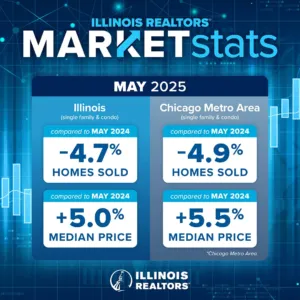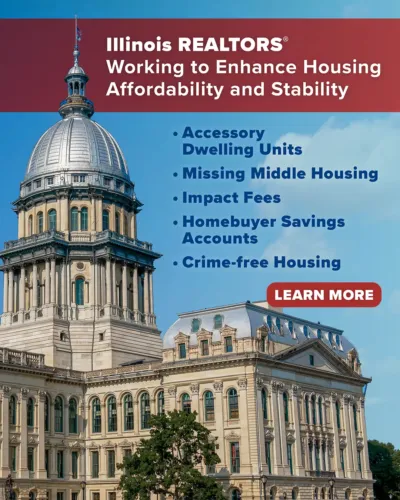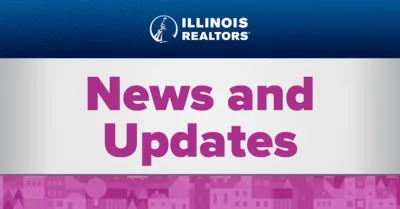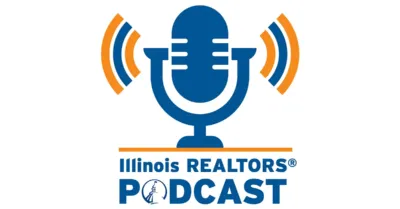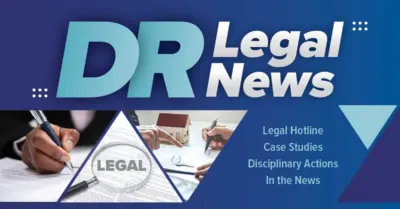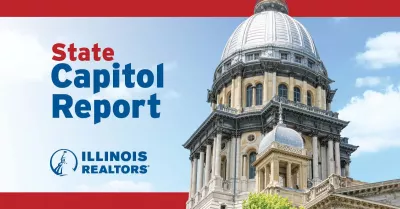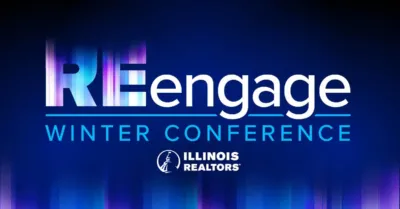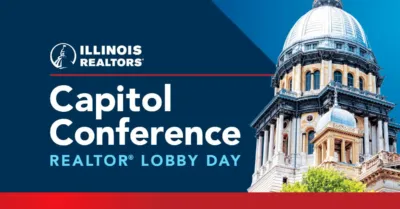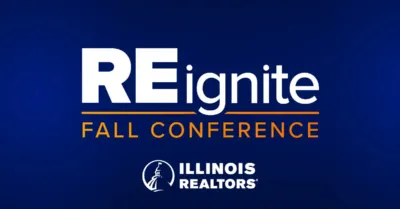Legal Hotline Top 3 from 2020
Lately, questions coming to the Legal Hotline have shifted away from COVID-19 related concerns toward business practices. This trend suggests that, in spite of the challenges presented by the state-wide safety restrictions, REALTORS® have succeeded in making things work and continue to thrive. Of course, the impacts of COVID -19, recent spikes and changing guidelines are still the subject of many hotline questions and REALTORS® should consider checking the Illinois REALTORS® web page frequently for updates on how the industry may be impacted.
Anneliese Fierstos
Illinois REALTORS® Legal Hotline Attorney
To date, the Top 3 Hotline Topics for 2020 are:
- License Law — Business Practices
- General License Law Questions
- Covid-19
We have included a sample question from each of these categories.
1. License Law-Business Practices
Q. I am changing brokerages, and I have several transactions for which I am the listing agent that will close in the weeks after I plan to make a change. Is my current broker obligated to pay me compensation for those transactions?
A: Generally, the answer is no because listing agreements are actually a contract between the sponsoring broker and the seller client, and compensation from the transaction is paid to the sponsoring brokerage. As an independent contractor, your rights to compensation that flow from the company’s commission are covered by the terms of your employment agreement or independent contractor agreement. In some cases, those agreements do allow for departing licensees to receive compensation for transactions that initiated during an agent’s tenure with a company. If there are no such provisions in your independent contractor agreement, you are not entitled to a portion of the commission. However, you may be able to negotiate some compensation by having a conversation with your designated managing broker.
Section 10-5(a) of the Real Estate License Act (RELA) does allow for a sponsoring broker to pay compensation to a licensee who has left the brokerage “pursuant to an employment agreement that was previously in place between a licensee and the non-sponsoring broker, and the payments are for licensed activity performed by that person while previously sponsored by the now non-sponsoring broker.”
If your employment/independent contractor agreement does have provisions that provide for independent contractors to be compensated for real estate activities performed while sponsored by that brokerage and the brokerage refuses to pay, it may require seeking assistance from independent legal counsel.
One frequent question which is closely related to this topic is whether an agent for a buyer or seller, who has left a brokerage, may attend the closing on a contract that was entered while sponsored by that brokerage. Generally, the answer to that is “no.” Under RELA, a licensee may only perform real estate activities for the sponsoring broker that holds their license. Attending the closing would create the appearance that the licensee was continuing to do real estate work for their former sponsoring broker while currently being sponsored by a different brokerage.
2. General License Law Questions
Q. I have decided that I would prefer to work out of a virtual office, rather than a physical office. Is it possible, and what are the guidelines I need to consider?
A. RELA allows for virtual offices, but the concept of what a virtual office should look like remained unclear as the Rules under RELA were being drafted. Now, the new Rules have been published, have made it past a required comment period and will hopefully become effective in early 2021. The published and not yet permanent rules provide a summary of what needs to be considered in order for a brokerage to operate a virtual office:
- To operate a virtual office (without a dedicated office space or fixed physical location) the sponsoring broker must be able to demonstrate their licensees are:
- Engaged in licensed activities;
- Offering real estate services;
- Holding out to the public they are engaging in licensed activities;
- Maintaining electronic files securely (including escrow records) in same format they were generated, sent or received;
- Able to make secure electronic files accessible to Department for inspection;
- Maintaining electronic files related to special accounts for minimum of 5 years;
- Backing up electronic files monthly.
- Virtual offices shall have digital infrastructure to facilitate the transaction of business, communications, advertising and real estate services through a virtual office website, URL or other digital platform inviting general public to transact business. The virtual website, URL or digital platform shall:
- Be registered with the Division of Real Estate;
- Display current registry of all sponsored licensee and license numbers;
- Display city/geographic location and state where real estate services are offered;
- Display contact information for the Designated Managing Broker (DMB) including their name, phone number, email address;
- If a sponsoring broker has multiple DMBs the contact information must be provided for each as well as names /license numbers of the licensees they supervise;
- Maintain a secure intranet or secure portal accessible by employees, independent contractors, licensees and upon request the Division;
- The intranet/portal must include electronic records (including escrow) securely stored in same format they were generated, sent or received;
- Physical documents converted to electronic records may not be altered in content;
- Must include an updated registry of sponsored licensee, their DMB’s, identification of additional office locations, and licensees associated with those offices
- The intranet/portal must include electronic records (including escrow) securely stored in same format they were generated, sent or received;
- Virtual offices must comply with all advertising requirements under Rules Sections 1450.715 and 1450.720.
The new Rules that outline virtual office structure focus heavily on security in order to protect the private information of the sponsoring brokerage’s clients. Compliance may require consultation with professionals such as tech specialists and attorneys.
3. COVID-19 Related Questions
Q . Are open houses and showings still allowed in Illinois under Tier 3 mitigations?
A. Currently, both open houses and showings are allowed in Illinois. However, licensees should continue to educate themselves on best practices in conducting any real estate related activities involving personal contact. These include social distancing where possible and frequent cleaning. Tier 3 mitigations prohibit indoor gatherings of more than one household and limit outdoor gatherings to 10 people. Most businesses can only operate at 25% capacity. Although the current mitigations do not specifically address open houses, the guidelines support a conclusion that access to an open house should be limited to one household at a time.
Some Best Practices to Consider:
- When conducting an open house, consider having the owner or listing broker open doors including closets and cabinets, turning on lights and opening window coverings to reduce the need to touch surfaces.
- Incorporate a non-discriminatory appointment policy into “open house-day” procedures to cut back on the number of attendees appearing at the same time.
- Restrict access after each showing to allow time for disinfecting areas of the home previous attendees viewed.
- Consider providing gloves and booties to all attendees of an open house and requiring face masks for all persons inside the home, even if social distance is maintained.
- Consider having an “open house” policy regarding use of PPE for showings and open houses.
Even if legally permissible, brokerages should carefully consider whether open houses are the safest option for their clients, their brokers and consumers. Brokerage policies should consider incorporating the use of technologies (like virtual open houses) to reduce physical presence, especially for the early stages of marketing properties. Use appointments in a consistent and non-discriminatory manner to physically view the property and incorporate the best practices from above, while keeping the number of contacts smaller.
Q. Are showings of tenant-occupied properties allowed during mitigation?
A. The legal answer is yes, depending on the terms of the particular lease and/or any local, state or federal requirement to give a certain amount of notice to the tenant(s) prior to showing the rental unit. Any showing, after giving the tenant the appropriate notice, must be done in a manner where all the safety measures are observed, that is, physical distancing, face coverings or any other required PPE, small groups, hand washing and sanitization/cleaning of surfaces.
Best Practice:
- Before entering a tenant-occupied unit, obtain the tenant’s express consent before showing a tenant-occupied unit.
About the writer: Anneliese Fierstos was the Illinois REALTORS® Legal Hotline Attorney.


